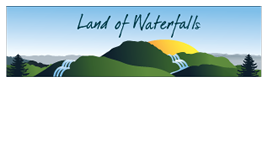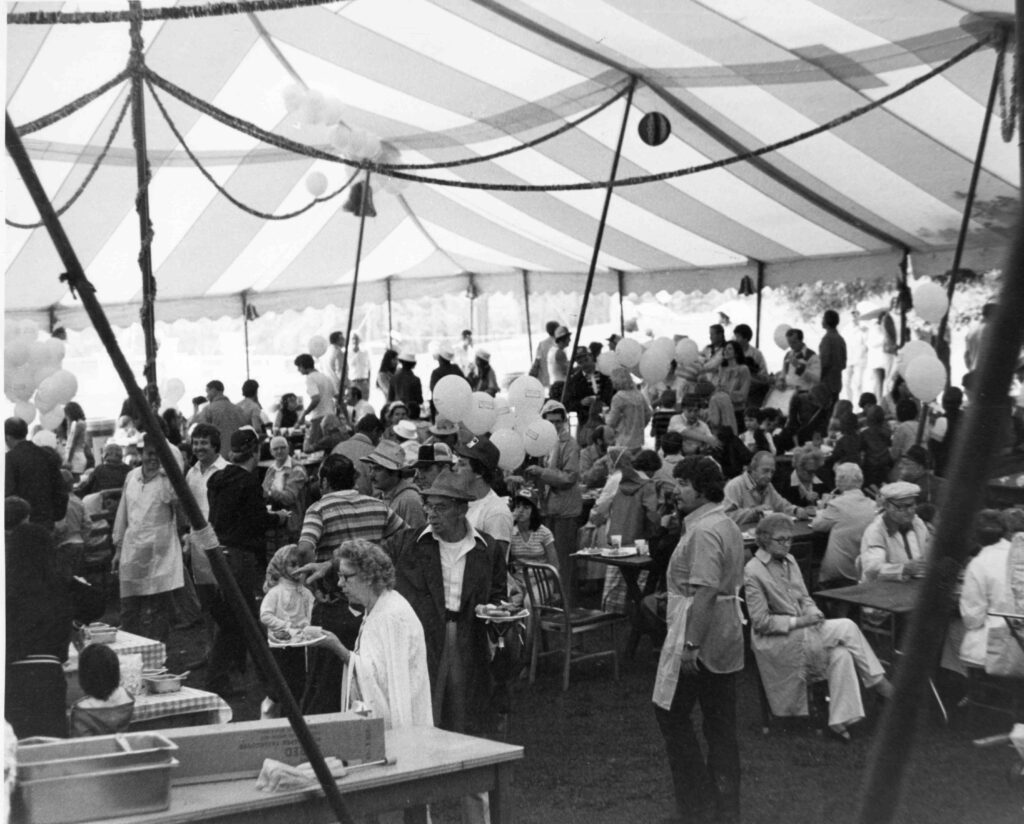
The Ecusta Paper Corporation held its inaugural 4th of July picnic in 1939, complete with a free barbeque supper for employees as well as the 1,000 workmen who helped construct the plant. Company owner Harry Straus was justifiably proud that no major accidents or deaths had occurred during the building process and wanted to celebrate that success. The picnic was held at the Pink Beds and forest rangers provided tables and drinking water for picnickers.
Over time, the picnic gradually grew into a mammoth day-long event eagerly anticipated by employees, with crowds estimated at 2,000 people during the early 1940s and up to 8,000 by the 1960s. The early 4th of July celebrations were held in the national forest but soon moved to Camp Sapphire, a summer camp for boys, in 1942. Straus purchased the property in 1945 to serve as an employee recreational center and the picnic continued to be held there until the P.H. Glatfelter Company, a later owner of the factory, sold the property in 1997.
The event was a well-choreographed extravaganza of competitions, parades, entertainments, and speeches designed to satisfy everyone’s tastes. The number of events required a paper program to keep everyone organized. The employees and their families received free lemonade, iced tea, coffee, popcorn, and ice cream, but most brought along picnic baskets filled with enough food to last through the day. With parking limited, bus routes were organized to carry people to the celebration.
The entire plant would shut down so that all employees could attend. Festivities usually began at 10:00 a.m., although in the later years there was a noon start time. The morning was taken up with competitions which could change from year to year. For men and boys there were an array of races including: three-legged-race, foot race, relay race, backwards race, potato race, shoe race, peanut scramble, swimming races, three-legged-race, canoe race, five-legged-race, and bicycle race. Other events included balloon blowing, egg tosses, egg catching, greasy pole climbing, hog calling, canoe battles, and even boxing and wrestling matches. There was unbelievably a “fat man race” for “men over 200 lbs.”
Winners of all events received a small cash prize. In the greasy pole contest, a five- or ten-dollar bill would be placed on top of the pole to give competitors an incentive to reach the top. Sometimes groups formed a human pyramid if frustrated individuals could not make it. There was also a greased pig event and participants could keep the pig if they could catch it.
Women and girls participated separately in most of the same events, but they also had their own that included cracker barrel, balloon toss, whirling race, needle threading, nail-driving, rope skipping race, dodge ball relay, and two that sound like they were fun to watch: the rolling pin throw and husband calling contest. One race was called “Eliza on Ice,” but there was no description provided in the program. It may have involved jumping from place to place on boxes, much as Eliza did across the ice floes in the novel “Uncle Tom’s Cabin.”
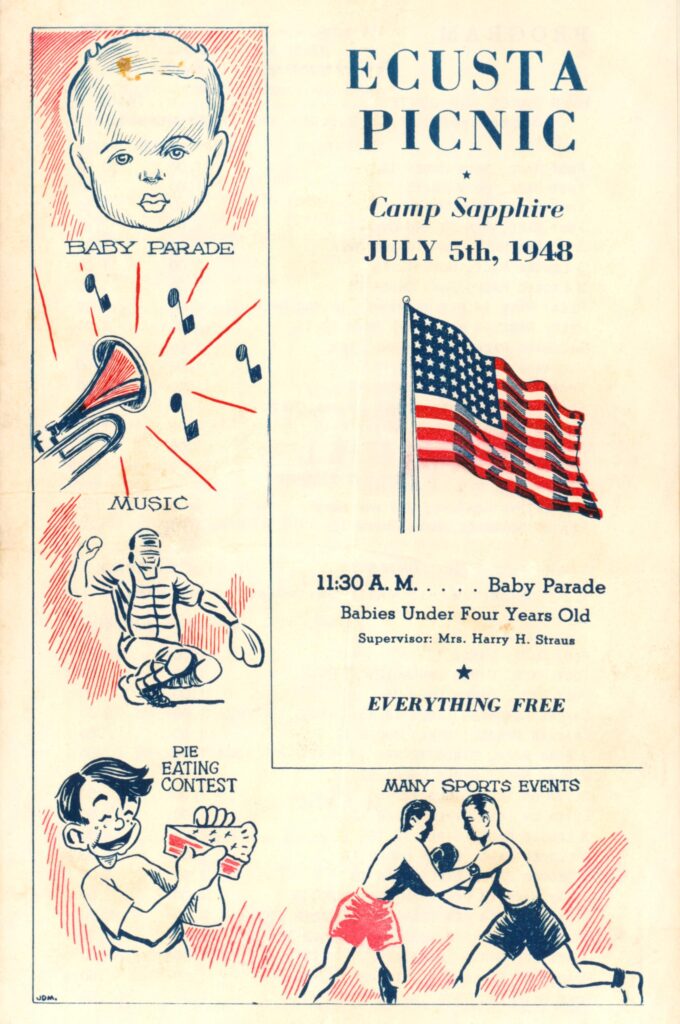
But wait, there’s much more! Men and women competed separately in archery and rifle events along with the horseshoe toss, fly casting, checkers tournament, tennis, ping pong, and diving competitions. Rifle contestants were required to bring their own rifle, but five cartridges were provided for free. Of course, there was also a pie eating contest. People who entered the pie contest were allowed “all the pie they could eat.”
In a funny, one-off event in 1947, the Union Bag and Paper Company provided a paper bag measuring eight feet by two feet, or the size of an old telephone booth. It was constructed of multi-walled grocery bag paper. People were invited to enter the paper bag and try to punch their way out.
For those not athletically inclined, there were plenty of other things to do and see including fair-type rides, dancers, dunking booths, speakers, entertainers, singers, clowns, magicians, jugglers, and bands. A variety of entertainers came each year, such as Tom Wiswell, “the world’s unrestricted checker’s champion” who played twenty players at once. Herb Parsons, a renowned sharpshooter, amazed the crowd with his famous “atomic shot,” which involved shooting apart a five-gallon jug of gasoline placed on top of a heated metal barrel, creating a large and impressive mushroom-looking cloud.
Bingo was very popular and originally cost five cents a game but was later offered for free. During World War Two, bingo winners received “defense stamps” instead of money.
A new event for 1946, and quickly a favorite each year, was the baby parade. Originally, Mrs. Straus led the parade, and her husband helped her hand out small gifts to the participants. Children were required to be under four years old, making it more than a “baby” parade. The Ecusta band, made up of high school students, marched with the parade and accompanied the participants with music.
During the 1940s, Harry Straus gave a speech around 2:00 p.m., commending his workers for a job well done. Each year, there were illustrious guest speakers that included North Carolina Governor J.M. Broughton and U.S. Senator Frank P. Graham of North Carolina.
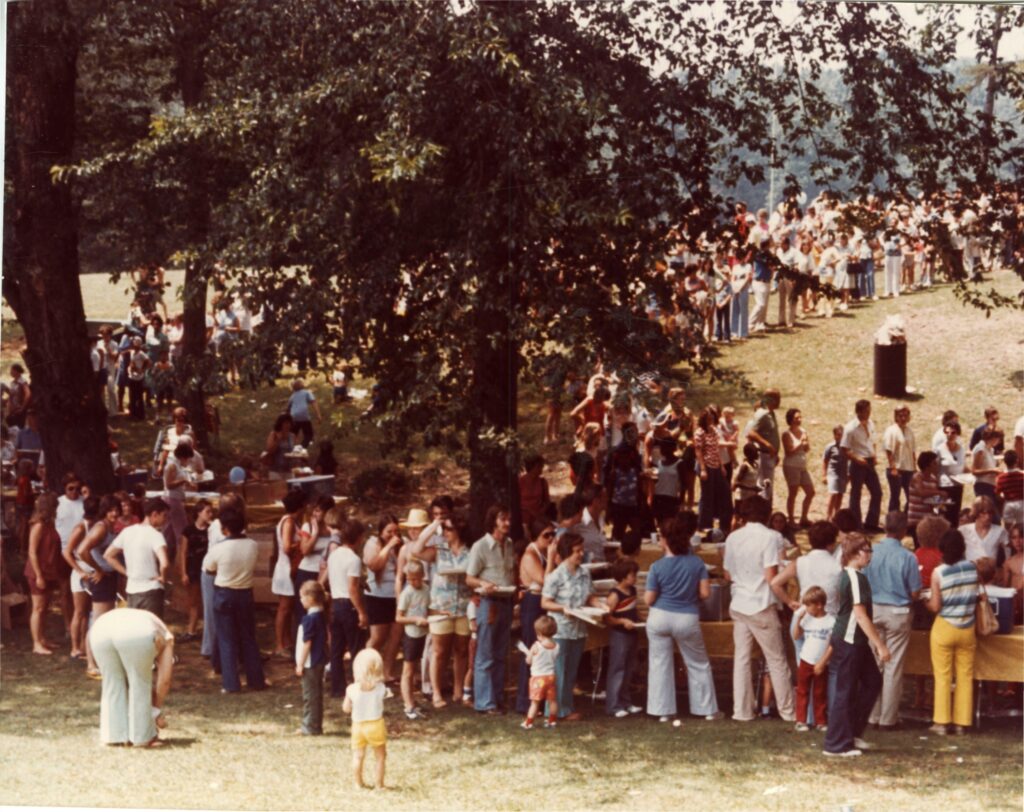
Finally, in the late afternoon, crowds moved to the baseball field to watch a hotly contested Industrial League baseball game between the Ecusta Papermakers and a visiting team from another factory such as the Enka Rayonites or Sayles Bleacheries.
The festivities came to a rousing conclusion with an evening square dance in the street in front of Brevard High School, then located where the library and daycare sit today. Music was provided by groups like the Rhett Talley Orchestra and the Ecusta String Band, with various men calling the dance, including one Speedy Jones. The dance was eventually moved to Straus Park.
In the weeks after the picnic, employees could re-live their memories thanks to a film production crew that shot the event and showed the results in the factory cafeteria, providing topics of conversation for weeks. The Transylvania Times also published the winners of every event so they could have bragging rights until next summer.
Photographs and information for this column are provided by the Rowell Bosse North Carolina Room, Transylvania County Library. This article was written by Local History Assistant Joe Russo. For more information, comments, or suggestions, contact NC Room staff at [email protected] or 828-884-1820.

